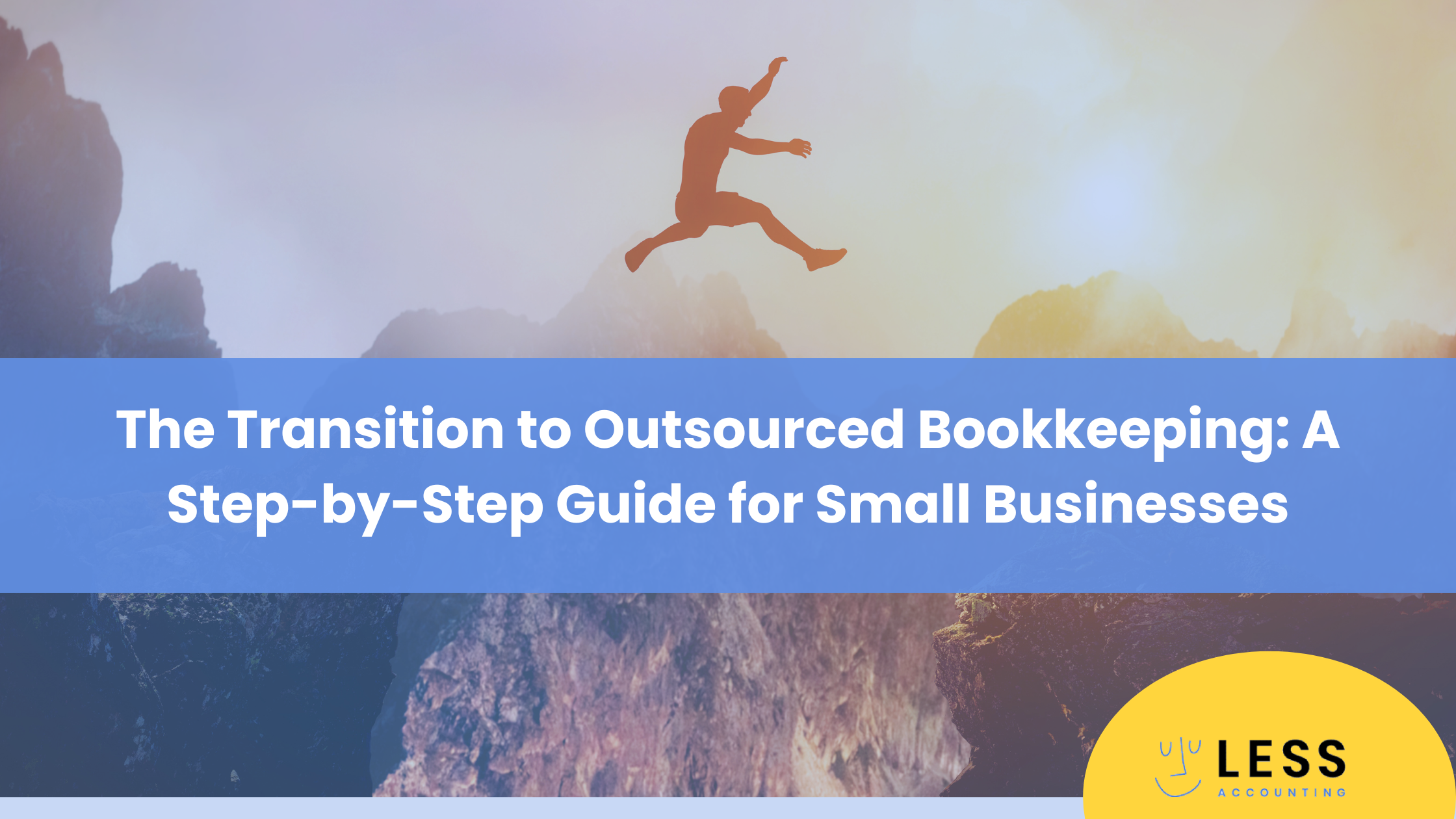©2011-2023 Less Accounting

Outsourced bookkeeping services can provide numerous benefits for small businesses, including cost savings, enhanced efficiency, and access to expert knowledge.
However, transitioning from in-house bookkeeping to an outsourced model can seem daunting. This step-by-step guide is designed to help small business owners make this transition smoothly and confidently.
Before you start looking for an outsourced bookkeeping service, it’s crucial to understand your business’s specific needs. Evaluate your current bookkeeping practices and identify what’s working and what isn’t.
Consider factors such as the volume of transactions, the complexity of financial reporting required, and the level of expertise needed. Understanding these needs will help you find a service that best matches your business’s requirements.
Once you know what you need, start researching potential bookkeeping services. Look for providers with experience in your industry and a proven track record of reliability and accuracy. Check reviews and references, and consider the technology they use. Ensure that their platforms are compatible with your business systems and that they can integrate seamlessly with your existing processes.
When selecting a provider, consider the following:
After choosing a provider, define the scope of their work and set clear expectations. Determine which tasks will be outsourced and which will remain in-house.
Common outsourced tasks include managing accounts payable and receivable, payroll processing, and financial reporting. Agree on the frequency of reports and updates, and establish key performance indicators (KPIs) to measure the service’s effectiveness.
Work with your outsourced bookkeeping provider to set up necessary systems and processes. This might involve migrating your financial data to new software, setting up secure methods for exchanging information, and training your team on any new procedures.
Ensure that the transition is as smooth as possible by maintaining open lines of communication with your provider throughout this process.
Once the transition is complete, continuously monitor the performance of your outsourced bookkeeping service.
Regularly review the reports they provide, and check them for accuracy and timeliness. Schedule regular meetings with your provider to discuss any issues and adapt the scope of work as necessary.
This ongoing evaluation will ensure that the outsourcing arrangement continues to meet your business needs efficiently.
Outsourcing bookkeeping does not mean relinquishing control over your finances. Maintain oversight of all financial transactions and ensure your business remains compliant with relevant laws and regulations.
Work closely with your outsourced provider to stay informed about any changes in financial legislation that may affect your business.
Outsourcing your bookkeeping functions can transform your business by freeing up time and resources that can be better spent on growth-oriented activities.
By following these steps, you can ensure a smooth transition to outsourced bookkeeping, allowing you to enjoy the benefits of professional financial management without the overheads associated with maintaining an in-house team.
Remember, the key to a successful outsourcing partnership is clear communication, regular monitoring, and a willingness to adjust the strategy as your business grows and evolves.
For small business owners, investing in robust bookkeeping practices, whether through training, hiring skilled personnel, or using advanced software solutions, is not an expense but a critical investment in the future of their business.
©2011-2023 Less Accounting